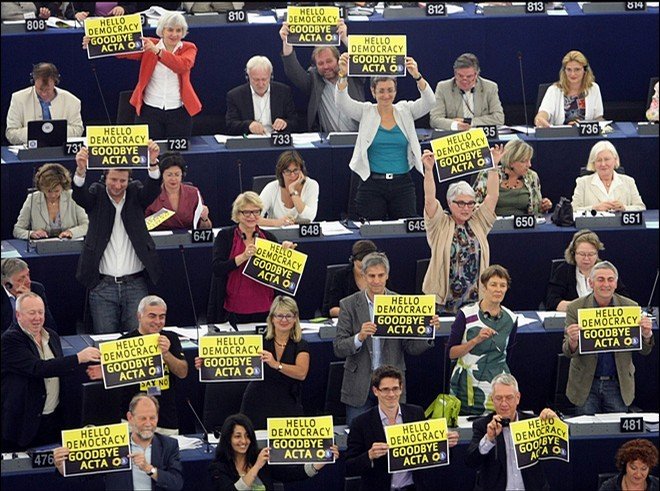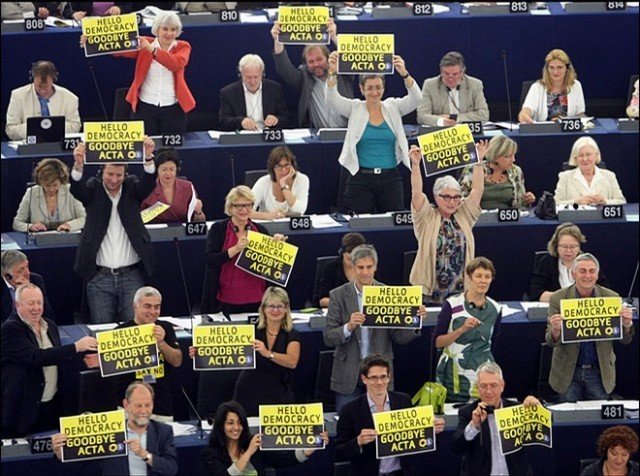
The European Parliament has voted yesterday to reject the Anti-Counterfeiting Trade Agreement (ACTA).
The proposed agreement sought to curb piracy, but internet campaigners said it posed a threat to online freedoms.
The rejection vote followed a failed attempt to postpone the decision because of ongoing investigations into ACTA by the European Court of Justice.
Euro MP David Martin said: “It’s time to give [ACTA] its last rites.”
Twenty-two EU member states had signed the ACTA treaty – but it had not been formally ratified.
Outside the EU, the treaty also had the support of the US, Australia, Canada, Japan, Morocco, New Zealand, Singapore and South Korea.

However, following significant protests, several countries chose not to back it.
Wednesday’s vote is seen by most observers as the final blow to the treaty in its current form. It means no member states will be able to join the agreement.
A total of 478 MEPs voted against the deal, with 39 in favor. There were 165 abstentions.
EU Trade Commissioner Karel De Gucht said work on tackling piracy would continue.
“Today’s rejection does not change the fact that the European Commission has committed itself to seeking answers to the questions raised by the European public,” he said.
“The European Commission will continue to seek the legal opinion of the European Court of Justice on whether this agreement harms any of the fundamental rights of European citizens – including freedom of speech.
“European citizens have raised these concerns and now they have the right to receive answers. We must respect that right.”
As the decision was made, some of those in attendance held banners reading: “Hello democracy, goodbye ACTA.”
However, key players in the creative industries expressed frustration at the decision.
“ACTA is an important tool for promoting European jobs and intellectual property,” said Anne Bergman-Tahon, director of the Federation of European Publishers.
“Unfortunately the treaty got off on the wrong foot in the parliament, and the real and significant merits of the treaty did not prevail.”
Alan Drewsen, executive director of the International Trademark Association, warned that Europe could now be left behind when it comes to protecting intellectual property.
“Europe could have seized the chance to support an important treaty that improved intellectual property standards internationally,” he said.
“We expect that ACTA will move ahead without the EU, which is a significant loss for the 27 member states.”
What is ACTA?
• The Anti-Counterfeiting Trade Agreement (ACTA) is an international treaty aiming to standardise copyright protection measures.
• It seeks to curb trade of counterfeit physical goods, including copyrighted material online.
• Deterrents include possible imprisonment and fines.
• Critics argue that it will stifle freedom of expression on the internet, and it has been likened to the controversial Stop Online Piracy Act (SOPA).
• ACTA had been signed by 22 EU members but has now been rejected by the European Parliament.